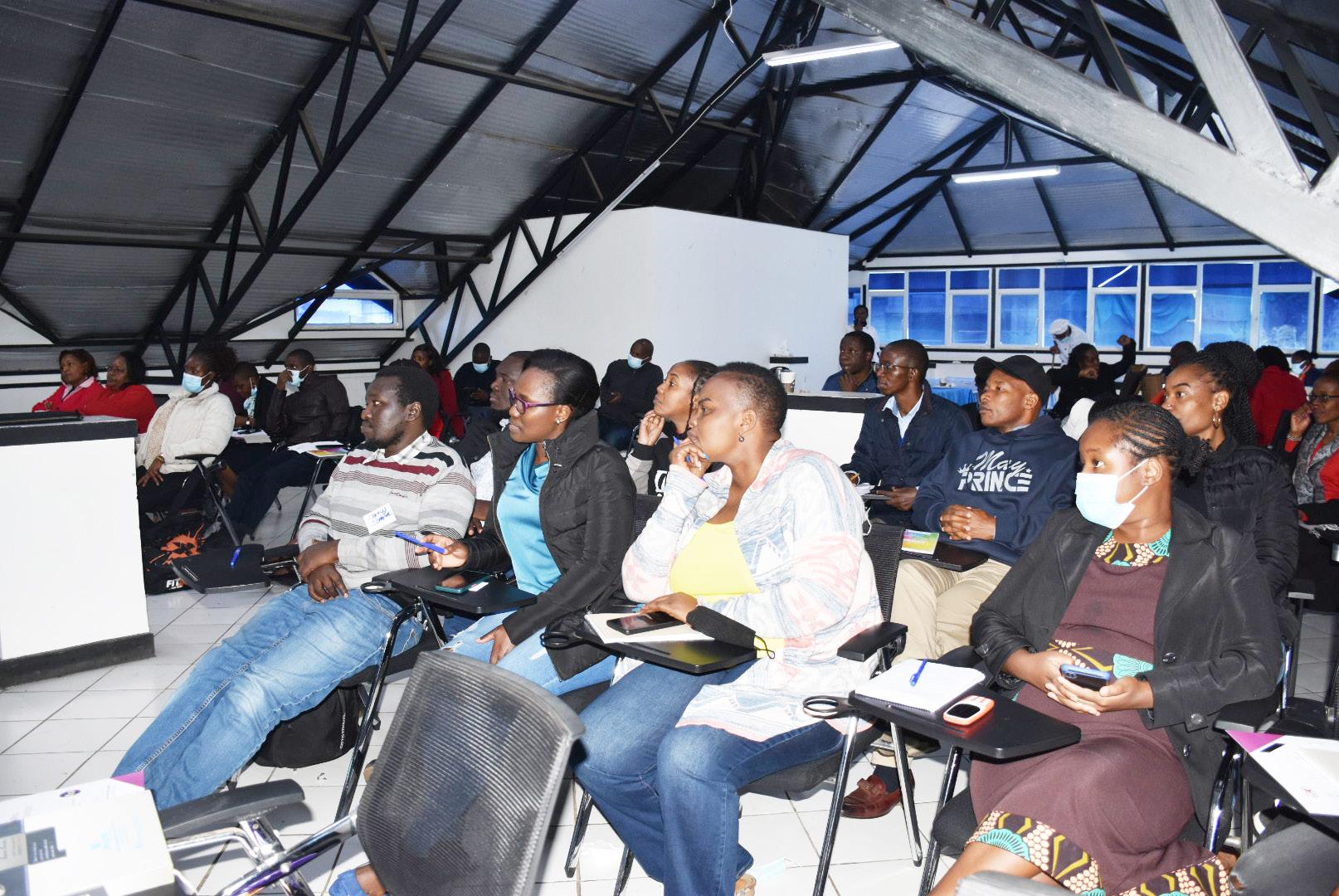
2 minute read
KNH hosts nurses’ and pharmacists’ oncology training
By Samira Khisa Yusuf
Training oncologists is the first step toward reducing the burden of cancer and equipping medical workers with the skills and knowledge to further their practice.
Advertisement
According to research done by the World Health Organisation (2021), cancer is the second leading cause of death in the country.
Kenyatta National Hospital hosted the Oncology training of nurses and pharmacists from various parts of the country.
The event that kicked off on Tuesday 19th July 2022 to Friday 22nd July 2022 at the KNH Diagnostic and Reporting center brought together some of the key personnel in the health sector including Dr. Martin Mwangi, Head of the National Cancer Institute of Kenya (NCI-K), Dr. Joy Frida Chepchumba - Program officer in charge of treatment, Palliative Care and Survivorship at the National Cancer Control Programme (NCCP), KNH Director, Nursing Services - Ms. Raheli Mukhwana and Paediatric and Nursing Oncologists from KNH among other facilitators.
The event was organized by the department of Non-communicable Diseases under the Ministry of Health and aimed at training the medics on Chemotherapy safe handling.
The trainees were drawn from a total of 12 regional centers across the country including Meru, Nyeri, Embu, Kisumu, Mombasa, Bomet, Kakamega, Makueni, Garissa, Nakuru, Vihiga, and Machakos.
Other participants in the training program included Kenyatta University Teaching and Referral Hospital, Moi Teaching and Referral Hospital as well as Kenyatta National Hospital- Othaya.
The extensive training covered fundamental areas including but not limited to policies and perspectives on Chemosafe handling, Cancer Treatment modalities, Chemotherapy routes of administration, Standards of practice for handling

Oncology nurses and pharmacists listening in on the training.
PHOTO |ELIJAH NG’ANG’A
chemotherapy, practical sessions on spill management mechanisms, and many other areas.
The topics were identified after research established that oncology nurses and pharmacists did not keenly observe the safe handling of drugs and equipment used in the treatment of cancer patients.
“The drugs are very dangerous, especially to our nurses and pharmacists who are directly involved in the mixing and administration of the drugs to the patients. Gears that include specific kinds of masks and gloves should be used in chemotherapy sessions. All processes of mixing chemotherapy drugs should be done in a biosafety cabinet to avoid exposure. These are some of the things we have trained since the beginning of this program,” said Dr. JoyFrida Chepchumba the program










